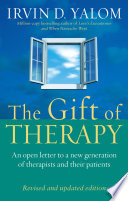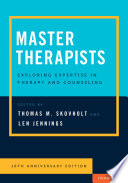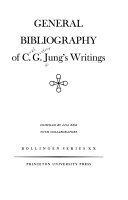Get ready to question the meaning of your existence with these top authors like Yalom.
Questioning the meaning of life? You’re not alone. Irvin Yalom has made a living by helping people through these tough existential questions. The renowned author is a psychiatrist and professor at Stanford University. He’s known for his fiction and nonfiction works, including his memoir Creatures of a Day – And Other Tales of Psychotherapy and instructional work The Gift of Therapy: An Open Letter to a New Generation of Therapists and Their Patients.
Our guide will help you add books to your reading list that will help you get to know yourself – and the inner workings of your mind – a little bit better.
For more recommendations, you might also enjoy exploring authors like Colleen Hoover, best young adult books, best contemporary romance books.
Must-Read Authors Like Yalom
You might also enjoy best Irish authors, best British authors, best American authors.
1. Sigmund Freud, 1856 -1939
Known to many as the father of psychology, Civilization and Its Discontents author Sigmund Freud was a neurologist, writer, and psychology pioneer whose ideas shaped the future of mental health treatment for years to come. His technique of psychoanalysis cemented psychological techniques, including transference and free association. Freud also pioneered dream interpretation and developed the foundational psychological concepts of the id, the ego, and the super-ego.
While many of Freud’s specific theories have been challenged or revised, his fundamental insight that unconscious processes shape human behavior remains influential in contemporary psychology and psychotherapy. Modern neuroscience continues to validate aspects of his work on memory, trauma, and the unconscious mind.
“It is impossible to escape the impression that people commonly use false standards of measurement — that they seek power, success, and wealth for themselves and admire them in others, and that they underestimate what is of true value in life.”
Sigmund Freud, Civilization and Its Discontents
2. Jeffrey Kottler, 1951 -
Bad Therapy: Master Therapists Share Their Worst Failures author Jeffrey A. Kottler is a contemporary psychologist, professor, and author who works to promote personal development in a way that’s accessible to all people. In addition to his wildly successful Master Therapists work, Kottler is also known for his instructional texts that help to inform the next generation of therapists. This psychologist is a captivating public speaker and is celebrated for his ability to make tough mental health concepts understandable to various audiences.
Kottler’s willingness to explore therapeutic failures and setbacks has revolutionized how mental health professionals approach learning and growth. His honest examination of what doesn’t work in therapy has become essential reading for practitioners seeking to improve their effectiveness.
“We thought back to previous research we’d been involved in with so-called difficult clients. One conclusion was that there really are no such things—all clients are really doing the best they can—just doing their jobs coping in the only way they know how.”
Jeffrey A. Kottler, Bad Therapy: Master Therapists Share Their Worst Failures
3. Edward Welch
Author of When People Are Big and God is Small: Overcoming Peer Pressure, Codependency, and the Fear of Man, Ed Welch is a well-known minister, professor, and writer. After earning his doctorate in counseling neuropsychology from the University of Utah, Welch became an ordained minister at Biblical Theological Seminary. As a licensed psychologist, Welch combines spirituality and psychology to help people understand issues that can otherwise seem impossible (such as faith and grief).
Welch’s integration of biblical counseling with psychological insights offers a unique perspective for those seeking to understand human behavior through both spiritual and scientific lenses. His work continues to influence the growing field of pastoral counseling and faith-based therapy approaches.
“God’s love is a costly love. It never takes the easy path away from relationships. Instead, it plots how to move towards other people. It thinks creatively of ways to surprise them with love.”
Edward T. Welch, When People Are Big and God is Small: Overcoming Peer Pressure, Codependency, and the Fear of Man
4. C.G. Jung, 1875-1961
Psychology and Alchemy was written by Jung in an effort to explain the parts of the brain that are not adequately explained by religion. He found that dreams and fantasies were a helpful part of understanding the subconscious and that the symbols in these parts of the mind could help mental health professionals better understand their patients. Jung was known for paying special attention to the mental health of older adults, as he felt that many of them struggled to find their place in life. He worked with this demographic to help them develop a sense of individuality (which he named individuation).
Jung’s concepts of the collective unconscious, archetypes, and individuation continue to profoundly influence modern psychology, literature, and spiritual practices. His work on personality types laid the foundation for tools like the Myers-Briggs Type Indicator, which remains widely used in 2025.
“People will do anything, no matter how absurd, in order to avoid facing their own souls. One does not become enlightened by imagining figures of light, but by making the darkness conscious.”
Carl Jung, Psychology and Alchemy
5. Carl Rogers, 1902-1987
A Way of Being is one of psychologist Carl Rogers’ most well-known works. Rogers is known as one of the founders of psychological research, using scientific methods to learn more about effective patient treatments. Rogers took a person-centered approach, today known as a humanistic approach to psychology. The psychologist worked to treat patients as whole people rather than as a person experiencing a disease or mental health issue.
Rogers’ emphasis on empathy, unconditional positive regard, and genuineness in therapeutic relationships has become foundational to modern counseling practice. His person-centered approach continues to influence everything from corporate coaching to educational philosophy in 2025.
“People are just as wonderful as sunsets if you let them be. When I look at a sunset, I don’t find myself saying, ‘Soften the orange a bit on the right hand corner.’ I don’t try to control a sunset. I watch with awe as it unfolds.”
Carl R. Rogers, A Way of Being
6. Deborah Anna Luepnitz
Schopenhauer’s Porcupines: Intimacy And Its Dilemmas: Five Stories Of Psychotherapy (2008) delves into Luepnitz’s history as a therapist, working to explain how she uses Freudian techniques without sticking as strictly to the rules as the founding father of psychoanalysis. The critically acclaimed book follows the stories of a girl with diabetes, a man with commitment issues, a couple debating whether they should have a second child, a lesbian, and a homeless woman. The book is an excellent reference for budding therapists or those curious about whether a career in the mental health field is a good fit for them.
Luepnitz’s feminist psychoanalytic approach has helped modernize Freudian theory for contemporary practice. Her case studies demonstrate how classical psychoanalytic concepts can be applied with greater cultural sensitivity and awareness of social justice issues.
“There is no perfect solution to the problem of writing about therapy patients. But not to do so strikes me as the riskiest choice at a time in our culture when the power to define madness, malingering, and suicide potential is being handed over to insurance company functionaries.”
Deborah Anna Luepnitz, Schopenhauer’s Porcupines: Intimacy And Its Dilemmas: Five Stories Of Psychotherapy
7. Stephen Grosz, 1952 -
British author of The Examined Life: How We Lose and Find Ourselves, Stephen Grosz, is a University of California-educated instructor at the Institute of Psychoanalysis. The Examined Life was at the top of the bestseller list for three months following its publication, and the book has been translated into more than 25 languages. The book was chosen as one of the best books of the year by The New York Times, Salon, and The British Psychological Society.
Grosz’s ability to distill complex psychoanalytic insights into accessible, compelling narratives has made psychotherapy more understandable to general audiences. His work demonstrates how brief therapeutic encounters can reveal profound truths about human nature and personal growth.
“In trying so hard to be different from our parents, we’re actually doing much the same thing — doling out empty praise the way an earlier generation doled out thoughtless criticism. If we do it to avoid thinking about our child and her world, then praise, just like criticism, is ultimately expressing our indifference.”
Stephen Grosz, The Examined Life: How We Lose and Find Ourselves
8. Alice Miller, 1923 – 2010
Born Alicja Englard, Alice Miller was the author of The Drama of the Gifted Child: The Search for the True Self. The Polish-Swiss psychologist is well-known for her books on the effects of abuse on children. Miller was one of the first mental health experts to depart from the Freudian style of treatment, stating that his ideas were poisonous. Miller became highly influential in parenting and taught that accepting childhood experiences was the only protective factor against adult mental illness.
Miller’s groundbreaking work on childhood trauma and its lasting effects has profoundly influenced modern understanding of developmental psychology. Her emphasis on the child’s perspective and the validation of childhood experiences continues to shape trauma-informed care practices in 2025.
“Experience has taught us that we have only one enduring weapon in our struggle against mental illness: the emotional discovery and emotional acceptance of the truth in the individual and unique history of our childhood.”
Alice Miller, The Drama of the Gifted Child: The Search for the True Self
9. Tanya Byron, 1967-
The Skeleton Cupboard: The Making of a Clinical Psychologist wasn’t Byron’s first foray into psychology. She started working as a researcher for a documentary series in Britain and then began working in public health. Byron’s interest in psychology began when she was a teen–her grandmother was beaten to death by a drug addict. This interested Byron in how the brain could rationalize murdering a person for drugs. The psychologist has created several psychology-based television programs in Britain.
Byron’s work bridging academic psychology and public understanding through media has made mental health concepts more accessible to broader audiences. Her personal journey from trauma to professional expertise demonstrates the transformative potential of psychological understanding and healing.
“Through them, we attempt to understand the line between sanity and insanity - and come to realize that it does not exist. The most fragile, vulnerable people can still offer strength and wisdom. Those hardened by cruel circumstances can show real kindness and compassion towards those who treat them. And those of us who outwardly appear untroubled can mask an inner life of turmoil.”
Tanya Byron, The Skeleton Cupboard: The Making of a Clinical Psychologist
10. Joseph Campbell, 1904-1987
The Power of Myth by Joseph Campbell delves into archetypes similar to those explored by Carl Jung. Much of Jung’s work is based on the idea that mythical figures are internalized as aspirational. Campbell’s work exploring folklore, myths, and their influence on society provides a solid basis for those preparing to delve into Jung’s writings. Much of Campbell’s work is congruent with Jung’s theories on dream interpretation and symbolism.
Campbell’s concept of the “Hero’s Journey” has influenced not only psychology and mythology studies but also storytelling across all media. His work continues to provide insights into the universal patterns of human experience and personal transformation that resonate in contemporary self-help and spiritual practices.
“People say that what we’re all seeking is a meaning for life. I don’t think that’s what we’re really seeking. I think that what we’re seeking is an experience of being alive so that our life experiences on the purely physical plane will have resonances with our own innermost being and reality so that we actually feel the rapture of being alive.”
Joseph Campbell, The Power of Myth





